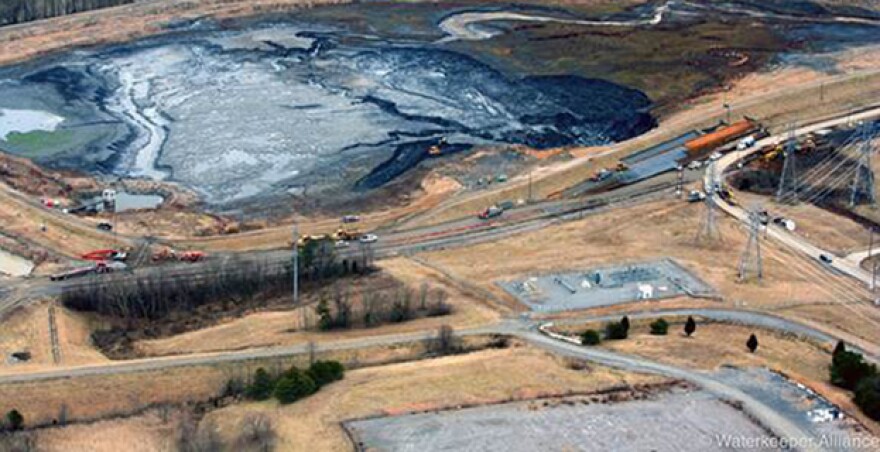Members of the North Carolina Senate took up the issue of coal ash clean up Thursday. They heard the first public presentation of how the governor wants to address possible contamination from coal ash ponds across the state.
But before we get into the governor’s plan, here's the story of Sherry Gobble and why coal ash might be a problem.
Sherry lives in her dream house. It’s on 14 acres. There are trees. There’s a farm. And, next door to her Rowan County ranch there’s a Duke Energy plant and a pond. In it, there are tons of ash residue left from burning coal to generate electricity.
It hadn’t been a problem until April, when Sherry says the well she uses for water, got contaminated with lead and chromium six maybe from the coal ash.
Now, for showers, Sherry takes her children to her father’s house.
"It's a hard routine," Gobble says. "I mean, think about it, when you go to make tea, and you have to use all bottled water, think how frustrating that would be. You cannot turn your spigot on because you're afraid to. "
There are 33 such ponds in North Carolina. They hold ash from decades of generating electricity. They’ve been in the spotlight since February, when 39,000 tons of ash spilled from one pond into the Dan River.
Lawmakers are trying to figure out how to prevent more spills, and Senators heard a proposal that comes straight from the governor’s office.
Tom Reeder, the director of Water Quality at the Department of Environment and Natural Resources, says the department wants to require Duke to protect ground water, surface water and to completely remove the coal ash from at least four ponds. Those are near Charlotte, Asheville, Wilmington and the one by the Dan River.
"Ninety days after the bill is enacted, they have to submit a closure plan for Dan River and Sutton," Reeder says. "So within three months after the enactment of this bill, they have to submit closure plans for four sites in North Carolina. The four sites that everyone's concerned about."
Reeder says this plan is the best way to handle the problem in a relatively short period.
"We've removed this threat from North Carolina. We've capped these things, we've capped these things, we've moved these things, we've removed this ash. Whatever it is, at the end of the day, North Carolina's water resources are going to be protected."
Not so much, environmental observers say. At the hearing, conservationists told Senators that the best way to prevent coal ash contamination is to empty all of the ponds, and put the ash in dry places away from water ways.
"So first," says Cassie Gavin of the Sierra Club of North Carolina, "we're counting on you to prevent the problem from getting worse. Wet coal ash disposal should be phased out completely. And second, every good plan must have a time table."
Environmental observers say they want specific dates to empty all of the coal ash ponds. Duke Energy says it could take up to 30 years and 10 billion dollars to do that.
Senators on the committee didn’t act on the bill. They’re preparing a proposal of their own, which could come out next week.









